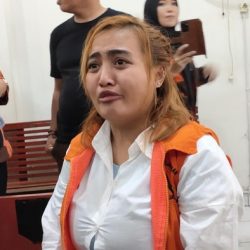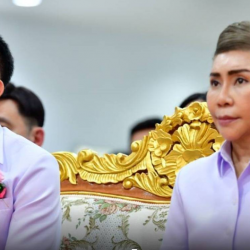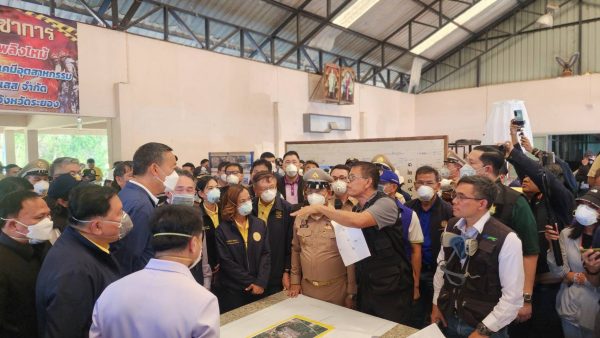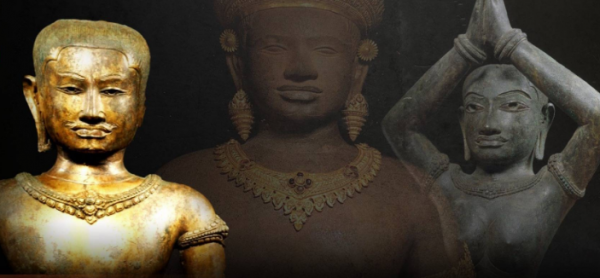The dramatic fall of Pita Limjaroenrat – and what it means for Move Forward Party

Pita Limjaroenrat, the initial frontrunner to become Thailand’s 30th prime minister, has made a huge sacrifice in a bid to secure the post of opposition leader for his Move Forward Party (MFP) while also helping MFP’s Padipat Suntiphada keep his seat as deputy House speaker.
Pita stepped down as leader of the opposition’s largest party last Friday (Sept 15), paving the way for one of his colleagues to succeed him at the helm of Move Forward. Two candidates have emerged – Chaithawat Tulathon, who is the party’s secretary-general, and deputy leader Sirikanya Tansakun.
In July, Pita failed to secure the votes required in Parliament to become the next prime minister, despite his party’s victory in the May 14 general election. Now, he has quit as the top candidate for next opposition leader.
Why did Pita opt to quit?
Pita’s chance of being appointed opposition leader any time soon was slim, after he was suspended as an MP pending a ruling by the Constitutional Court on whether he contested the election while knowingly holding media shares – a violation of the law.
A ruling in the case is expected late this year, possibly in December, and it was unlikely that Pita would have been appointed as opposition leader before that date.
The Constitution states that the opposition leader’s post must go to the MP who leads the political party with the largest number of opposition MPs, none of whom can serve as government minister, House speaker, or deputy speaker.
Pita’s awareness of that legal restriction was reflected in his Facebook post announcing his resignation as party leader last Friday. He said he had decided to step down to pave the way for a new party leader and MP to serve as opposition leader.
“Due to the Constitutional Court order suspending me from my duties as MP, I will be unable to work in the House of Representatives or serve as the opposition leader in the near future,” he wrote.
Legal hurdle still in place
Pita’s resignation automatically resulted in the termination of Move Forward’s entire executive board. A new party leader and board is now due to be elected at a Move Forward general meeting on Sunday (Sept 24).
However, the new Move Forward leader will face another constitutional obstacle to becoming the next opposition leader. The largest opposition party is barred from taking the opposition leader’s post while Padipat, one of its 151 MPs, is still serving as the first deputy House speaker.
Padipat has insisted on retaining the speakership, citing his selection by a majority of MPs followed by royal endorsement. The House of Representatives voted him into the post in early July, when the Move Forward-led coalition was aiming to form a new government. The alliance later collapsed, leaving his party in opposition.
How Padipat can keep his post
However, political analysts point to a legal loophole that would allow Move Forward to retain the post of opposition leader, while Padipat continues in his role as first deputy House speaker.
If Padipat insists on keeping his parliamentary post, thereby preventing the new Move Forward leader from becoming opposition leader, the party’s executive board would have good reason to expel him, according to the analysts.
The law gives an expelled MP 30 days to join a new party in order to retain his or her seat in Parliament. If expelled by Move Forward, Padipat would have enough time to move to a new party.
Move Forward’s ally in opposition, Fair Party, signaled last week that it would welcome Padipat as a member. Fair Party’s only MP, party secretary-general Kannavee Suebsang, said Padipat had made no “official request” to join his party but it was ready to “open all doors for him” if the first deputy speaker decided to make the switch.
Padipat appears to have accepted this option as a way of retaining his post as deputy speaker while allowing the new Move Forward leader to become the opposition leader. He said “this constitutional restriction” should not have existed in the first place, and would “force us to do something that is not straightforward”.
The deputy speaker said he would wait for Move Forward’s new executive board to decide on the matter before making his move.
Any chance of a comeback for Pita?
If the Constitutional Court clears him in the shareholding case, Pita can return to the Move Forward’s helm. And as leader of the opposition camp’s largest party, he would be entitled to become the opposition leader. However, his successor as party leader would first need to agree to step down, triggering a general meeting to elect a new leader and executive board.
By Thai PBS World’s Political Desk






